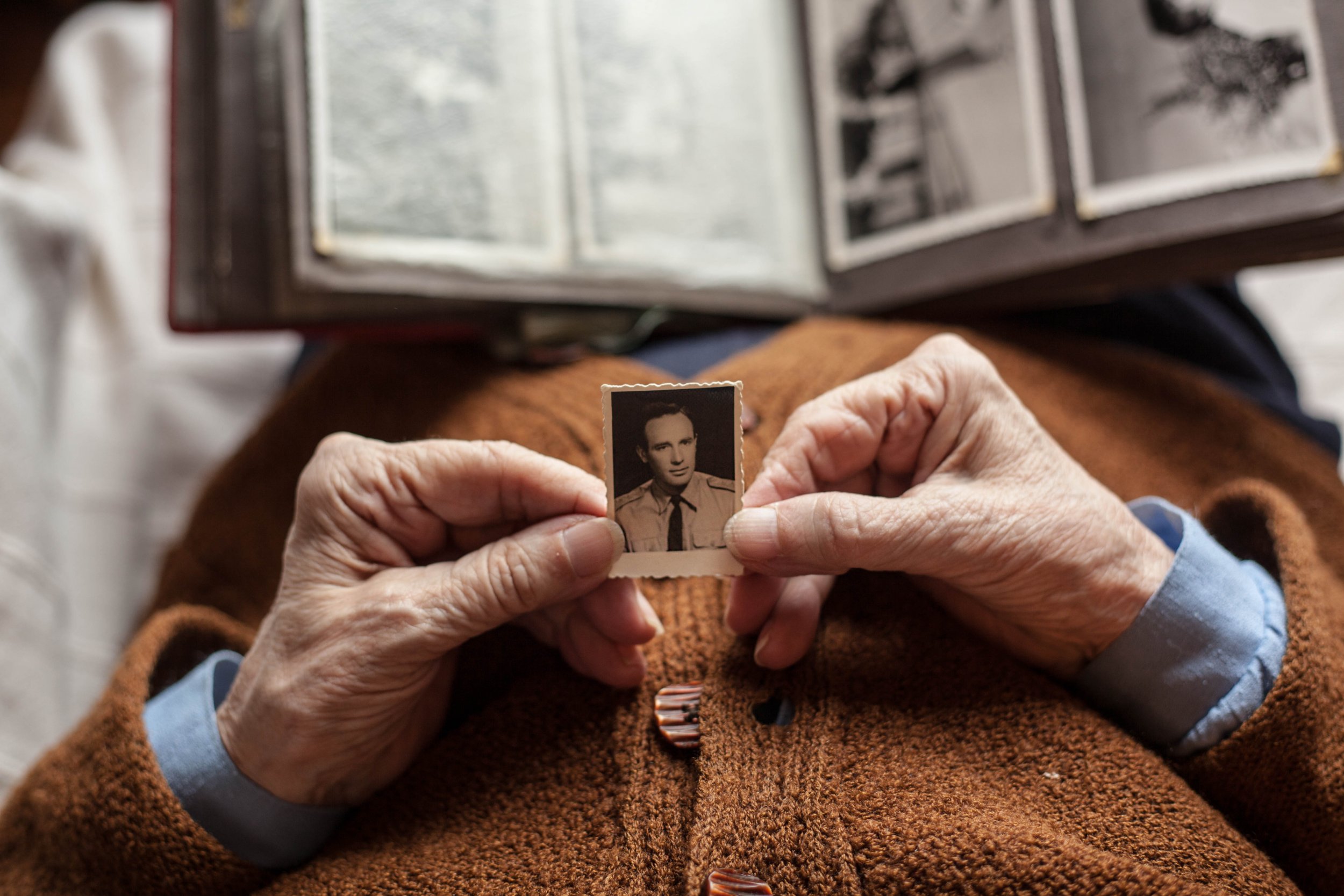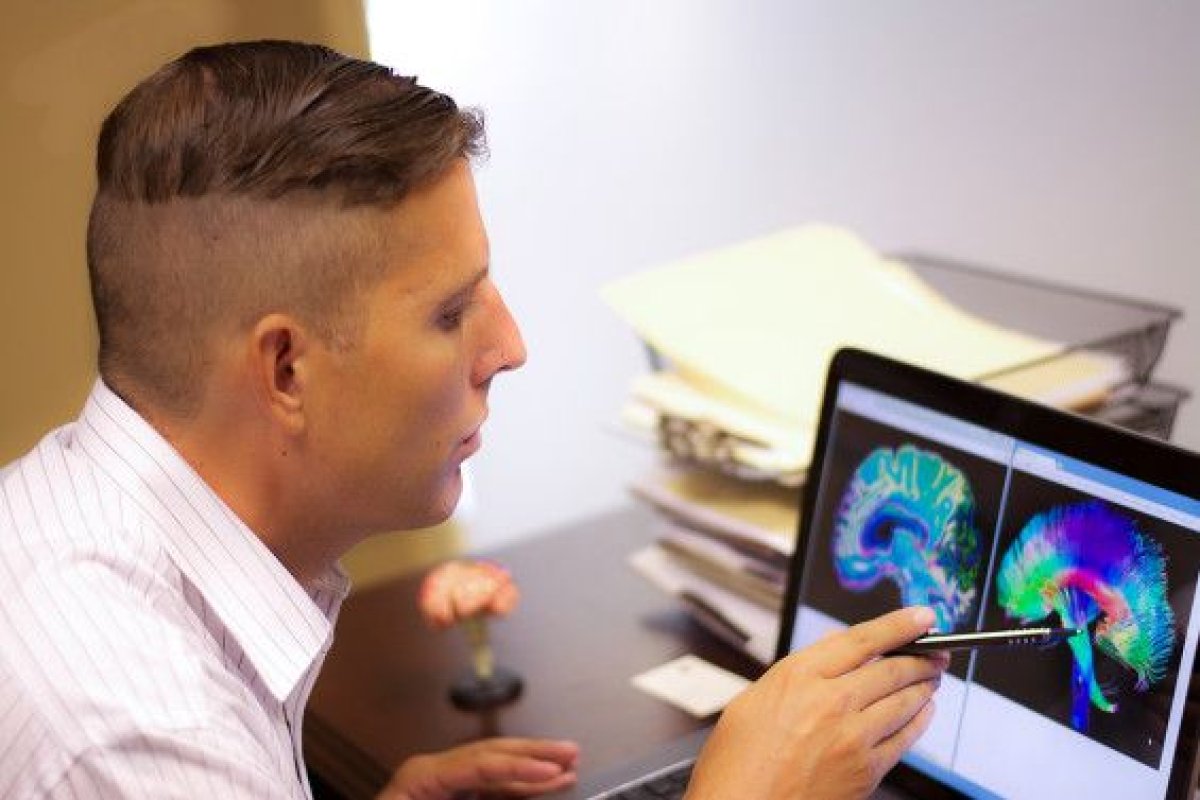
Since 2000, deaths caused by dementia have more than doubled, making it one of the world's biggest killers. Some 50 million people currently live with the disease, a figure expected to hit 152 million by 2050. There is currently no treatment to cure or slow the condition, of which Alzheimer's is the most common form.
Beneath these startling figures are the experiences of families who must watch as the disease slowly steals the memories and physical strength of their loved ones. Among them is neuropsychologist and dementia researcher Dr. John DenBoer, whose grandmother died of the illness. He charts his experiences and knowledge of the disease in his Netflix documentary This is Dementia, including his own research into the potential benefits of brain exercises.
Newsweek spoke to DenBoer on how worried we should be about dementia, and what the average person can do to lessen their chances of developing the condition.
How worried should we be about dementia?
Very. I believe that dementia is the most horrible of diseases because it takes from us what we value the most: independence, dignity and quality time. And then it kills us. It's also probably the only disease that may be harder for the caregiver than it is for the person affected. As the baby boomer generation ages into the range of dementia, we are faced with both a massive personal and societal crisis. It's right upon us now: we're staring it in the face, although we may not see it. This is not just happening in the United States but all over the world. There are many countries—including those in Eastern Asia (China, Japan, India) that are facing huge problems already.
It's important for us not to live in fear or worry. Instead, we should use that emotion to educate and empower ourselves and, most importantly, to take action against this disease via early identification and intervention. Worry can be useful, but we must use it.
It all starts with reducing stigma, increasing awareness and having real and honest conversations with loved ones about this disease.
Why are more people getting dementia?
Actually, the incidence of dementia is dropping slightly (mainly due to better control of vascular dementia via better control of hypertension, cholesterol, and lower incidence of diabetes), although the prevalence (i.e., sheer quantity) of the disease is rising. This is due to three main factors: population growth, increase in life expectancy and the baby boomer generation entering into the phase of mild cognitive impairment and dementia. In the next 10 to 20 years, dementia rates are expected to triple across the world. This will bankrupt our institutional systems like Social Security and Medicare.
Why have scientists not yet created a cure for dementia? Why is it so hard to treat?
Science is hard at work—and has spent billions of dollars—trying to find a pharmacological cure for dementia. There have been some wonderful efforts, but I believe we have been hampered by a misunderstanding of the true causal mechanisms of the disease and neuroimaging technology that is still in its relative infancy. Major drug companies have started to abandon so-called anti-dementia medication trials because the efficacy of the medication has been so low. Hopefully, that will change, but I don't see it changing too soon.
I don't think focusing on a cure is a bad thing, but we are focusing so myopically on it that we are not focusing on what we can do to mitigate the onset and reduce the intensity of the disease.
Treating dementia involves approaching it as a progressive disease that begins with mild cognitive impairment, the clinical precursor to dementia. It's at this point we need to intervene.

What are the biggest misconceptions people have about the condition?
There are three major myths surrounding dementia: One: it just happens as you get old, i.e., there is nothing you can do about it. Two: simply keeping your brain active is enough. In reality, you have to do new and novel things with your brain. And Three: dementia develops out of nowhere. In reality, it typically develops slowly for seven to 10 years prior to the onset of demonstrable symptoms. We call these early stages mild cognitive impairment.
In addition to the above myths, most people don't know what it is. They may think it is Alzheimer's disease, which is a type of dementia. It's sad, but most people can't even tell you what the word dementia means. It's really a failure on the part of the medical community to transfer basic knowledge to society.
What is your advice to someone who is scared about developing dementia?
First and foremost, address it early. A great time is when you get into your mid-50s, but, certainly, when one reaches the age of 65, i.e., when you enroll onto Medicare, is a great time to start having conversations with your primary care physician and family about good brain health. Get a memory evaluation long before any problem occurs: this is called a neuropsychological evaluation and is usually covered under your insurance. Have a repeat evaluation every two years even if nothing is wrong. If something abnormal is detected, then you may be directed to have one every six months or a year. Have an MRI of the brain done if something is wrong. Tell your doctor you want to do everything you can to help prevent dementia.
From a lifestyle perspective, a combination of aerobic and cognitive exercise is really beneficial. Cognitive exercise should incorporate new and novel learning, i.e., doing things you have never done before. Diet is also important: heart health = brain health. (Fitness program) Silver Sneakers is a great resource as well.
How can we fight the stigma around dementia? What can the average person do, and what can politicians and policymakers do?
The average person can begin by educating themselves about dementia: there is good information on the internet. Also, reach out to your local senior center or local Alzheimer's Association chapter. The Dementia Society of America and Alzheimer's Foundation of America have great information. There are also major advocacy groups you can join, such as UsAgainstAlzheimer's.
Apart from this, we need to have open and honest conversations about dementia. It's not a mental illness—it's a disease. I think just saying dementia reduces the power and stigma of the word.
Politicians and policymakers have a large role to play. We are terrifically behind in terms of legislation encouraging patients and providers alike to engage in early identification of dementia.
Overall, the most important thing is to have people take their healthcare into their own hands by engaging in the right kind of dementia mitigation techniques. Don't depend on science to save you—unfortunately, I believe a cure is way off. Take practical and inexpensive steps to reduce the onset and intensity of the disease, which can be done.
What exciting research is being done at the moment into dementia?
There is a great deal of exciting research in this area. I think some of the most exciting focuses on reducing onset and intensity of the disease. This kind of research really helps preserve independence, dignity and time for individuals affected.
I'm not sure we are nearing any "breakthroughs," but as neuroimaging advances, we may. From the pharmaceutical side, unfortunately not.
Uncommon Knowledge
Newsweek is committed to challenging conventional wisdom and finding connections in the search for common ground.
Newsweek is committed to challenging conventional wisdom and finding connections in the search for common ground.
About the writer
Kashmira Gander is Deputy Science Editor at Newsweek. Her interests include health, gender, LGBTQIA+ issues, human rights, subcultures, music, and lifestyle. Her ... Read more
To read how Newsweek uses AI as a newsroom tool, Click here.








